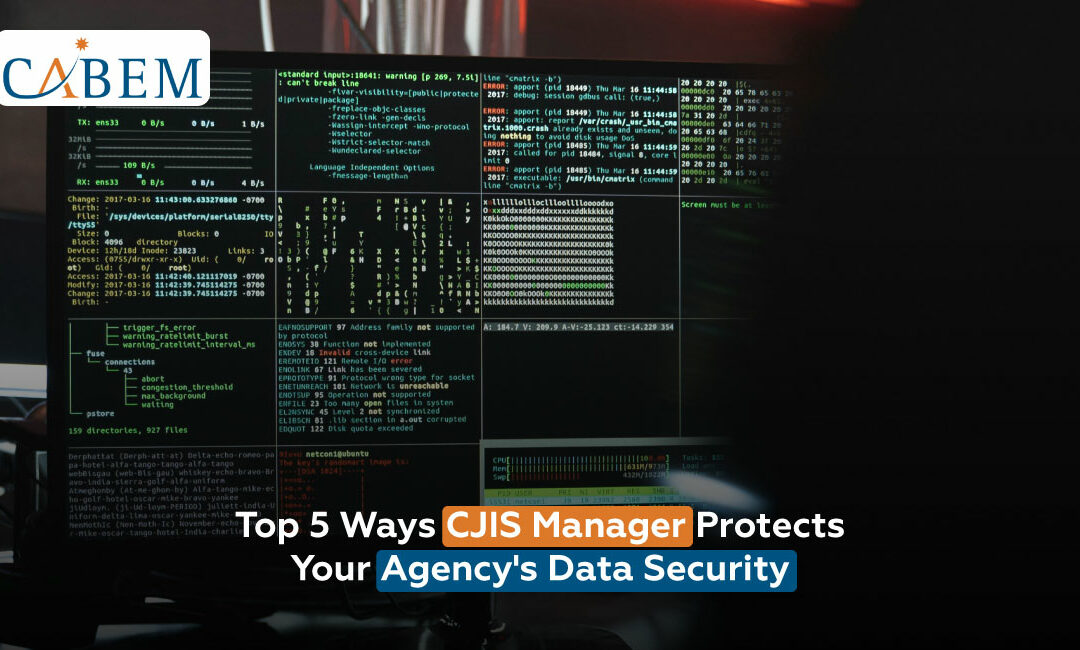With increasing dependence on technology and digitization of work, protecting data has become a prime concern for law enforcement agencies, including those working with sensitive data like Criminal Justice Information (CJI).
The sophistication required to protect such information has also increased, requiring advanced resources to mitigate risks and remain compliant. CABEM’s CJIS Manager aims to help agencies deal with these challenges safely and effectively.
This article highlights the top 5 ways CABEM CJIS Manager protects your data security and isolates why every agency should consider having it in 2024.
- The average cost of a data breach is USD 4.45 million, according to the IBM Cost of a Data Breach Report 2023. Thus, the financial and operational burden posed by poorly protected data can be detrimental.
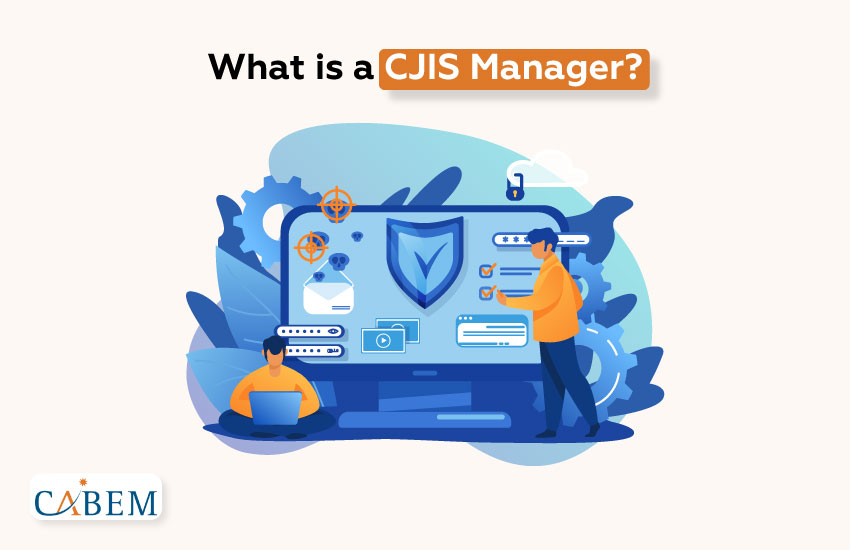
What is a CJIS Manager?
CJIS managers allow law enforcement agencies to monitor their Criminal Justice Information securely and competently.
The policy guarantees that the FBI Criminal Justice Information Services (CJIS) Security Policy on data storage and handling is followed, establishing a systematic approach to security protocols and requirements.
- Streamlines Compliance: Automatically updates to changing CJIS requirements and avoids penalties for your agency.
- Centralizes Data Management: Covers all CJI credentialing, background checks, and access logs management in one location.
- Supports Secure Data Handling: All data is securely transmitted and stored, making audits easy.
- Real-Time Monitoring: Provides real-time notifications to agencies when unauthorized access or compliance issues occur.
- User-Friendly Interface: Reduces the learning curve so staff easily comply with security requirements.
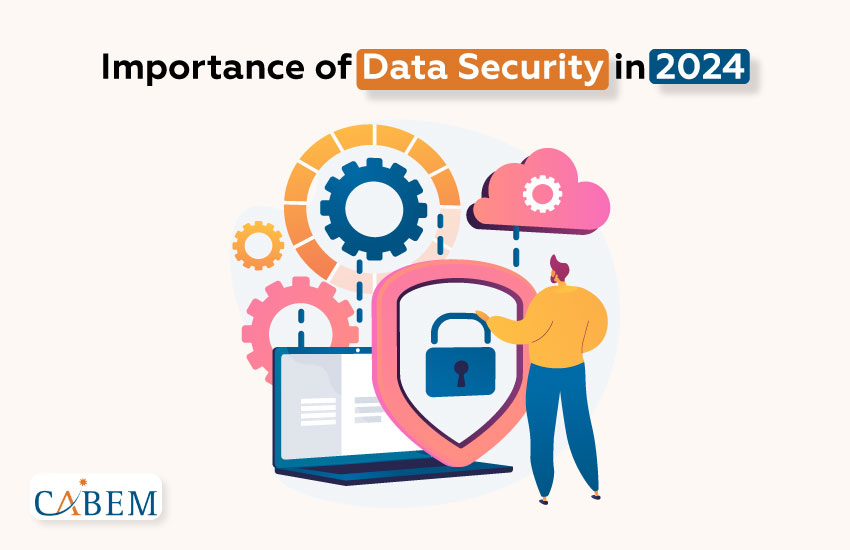
Importance of Data Security in 2024
As technology grows, so does the sophistication of these cybercriminals, who target organizations to steal valuable information.
The impacts on law enforcement agencies are usually non-reversible. Data leaks can tamper with cases under investigation, leak sensitive data, and hinder public trust.
- Increased Cyber Threats: Newly developed malware and ransomware attacks appear every new day, and robust data security measures should be a top priority for every organization.
- Evolving Compliance Standards: CJISSECPOL version 5.9.5 requires all organizations to adopt higher standards, including issues of firmware integrity and multi-factor authentication.
- Remote Work Trends: The remote work trends have increased the attack area for many organizations and further underscored the need for secure access to information.
- Public Sector as a Target: According to reports, the public sector, including law enforcement, is still one of the main targets of cyber-attacks, which makes safeguarding the data of utmost importance.
- Data Sensitivity: Criminal Justice records include certain sensitive information, such as criminal history, fingerprints, and other pertinent details of the investigations under process. Therefore, they require the highest protection.
- According to the 2023 Verizon Data Breach Investigations Report, 74% of breaches in the public sector resulted from human errors, too much access, or system weaknesses, highlighting the heightened requirement for control processes.
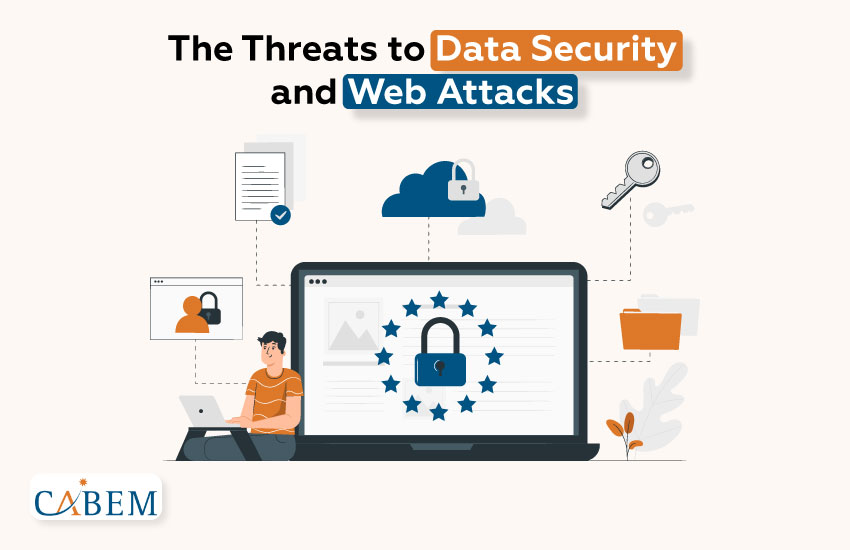
The Threats to Data Security and Web Attacks
Law enforcement agencies face cyber threats, such as threatening daily activities and exposing confidential and sensitive records.
These include but are not limited to, increasingly common ransomware attacks and other unauthorized access due to weak protocols, such as poor passwords. It is essential to know all these threats to apply the correct countermeasures.
- Unauthorized Access: Weak access control measures allow hackers to break into the systems and retrieve or change sensitive information.
- Ransomware Attacks: This attack is becoming more popular, where hackers block agencies and organizations from accessing vital files unless a ransom fee is paid.
- According to the FBI’s 2023 Internet Crime Report, ransomware attacks against public institutions have increased to 880,418, a five-year high.
- Data Breaches: Cybercriminals penetrate various systems and evade their security measures to obtain confidential information, such as exposing sensitive case data.
- Phishing Scams: Users are presented with authentic‐looking phishing attacks that request their credentials and give access to secure systems without permission.
- Insider Threats: Employees or individuals with too much access can deliberately or unintentionally frustrate system controls or erode sensitive data.
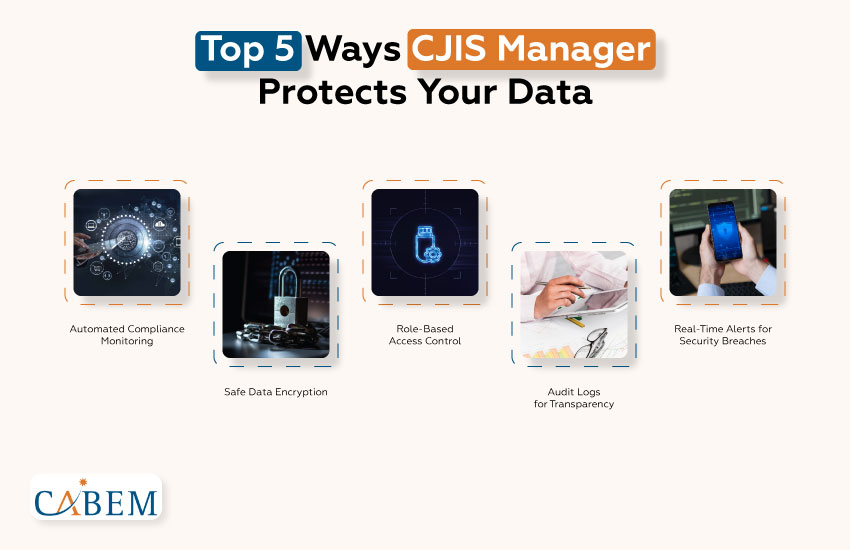
Top 5 Ways CJIS Manager Protects Your Data
Considering the increasing potential of cyber threats, it becomes evident that using a robust and well-fitted solution, such as CABEM’s CJIS Manager, is essential.
These are the top five ways it helps protect the data of your agency:
1. Automated Compliance Monitoring
CJIS Manager incorporates automated tools to facilitate effective, continuous compliance with CJIS Security Policy requirements, reducing agency staff burden.
- Automatic Updates: Helps meet the requirements set forth by CJIS, allowing them to always comply.
- Customizable Alerts: Helps administrators take preemptive actions over non‐compliant areas to control it.
- Simplified Audit Preparation: Thanks to consistent compliance monitoring, preparing for an audit is easy.
- Integration with Existing Systems: Saves time for the agency during installation and implementation of CJIS Manager.
- Focus on Core Operations: Minimizes resources needed to conduct manual compliance tests, allowing employees to devote more time to their primary responsibilities.
2. Safe Data Encryption
Encryption is essential in the protection of data. It means that even if data is intercepted, it will not be usable to those who do not have permission.
- End-to-End Encryption: This safeguards all data from its point of origin to its final location by maintaining the highest possible level of security throughout the entire data life cycle.
- Advanced Encryption Standards: Protect sensitive information like CJI by employing robust encryption keys.
- Encrypted Backups: Ensures that data copies or backups are also encrypted, which is the perimeter level of security.
- Data Isolation: Collectively encrypts the data, preventing possible weaknesses in case of intrusions.
- Secure Key Management: Protects and controls the availability of the encryption keys only to the allowed staff.
3. Role-Based Access Control
Particular attention should be paid to data access controls for sensitive data. CABEM CJIS Manager allows agencies to configure role-based restrictions within the institution.
- The Least Privilege Principle restricts users’ exposure and access only to relevant information based on their role or position.
- Granular Permissions: This allows administrators to assign access capacities so that no one can enter sensitive data without permission.
- Centralized Access Management: As users’ roles evolve within the agency, accessing the required information and modifying permission settings becomes easy.
- Enhanced Accountability: Creating a clear audit trail by keeping a check on when data is accessed and the access time.
- Access Reviews: All access levels are periodically checked to the required CJIS standards.
4. Audit Logs for Transparency
Maintaining audit logs for transparency is essential, and tracking data access events is crucial in performing compliance audits.
- Detailed Logging: This policy records all access attempts, changes made, or data retransmitted to ensure full accountability.
- Tamper-Proof Logs: Ensures that logs can never be changed, increasing their credibility during an audit.
- User Activity Monitoring: Keeps track of user activity to detect invalid activity as it occurs.
- Exportable Reports: Logs can be quickly exported for an external audit or internal investigation without any hassles.
- Compliance Verification: Gives a clear glimpse of compliance with CJIS protocols.
5. Real-Time Alerts for Security Breaches
A swift reaction is essential for controlling the consequences of a security breach. The CABEM CJIS Manager’s real-time alert capabilities allow agencies to respond immediately.
- Instant Notifications: Notifies administrators of a security problem, such as an unauthorized access attempt, as soon as it occurs.
- Customizable Alert Settings: Customizable alert notifications are available to fit the requirements and threats your agency faces.
- Automated Incident Response: Immediately activates crucial protocols to limit loss if a danger is present.
- 24/7 Monitoring: Guarantees uninterrupted surveillance of the operations even when business hours are over.
- Reduced Downtime: More rapid response times lead to quicker solutions, minimizing the interruptions experienced during operations.
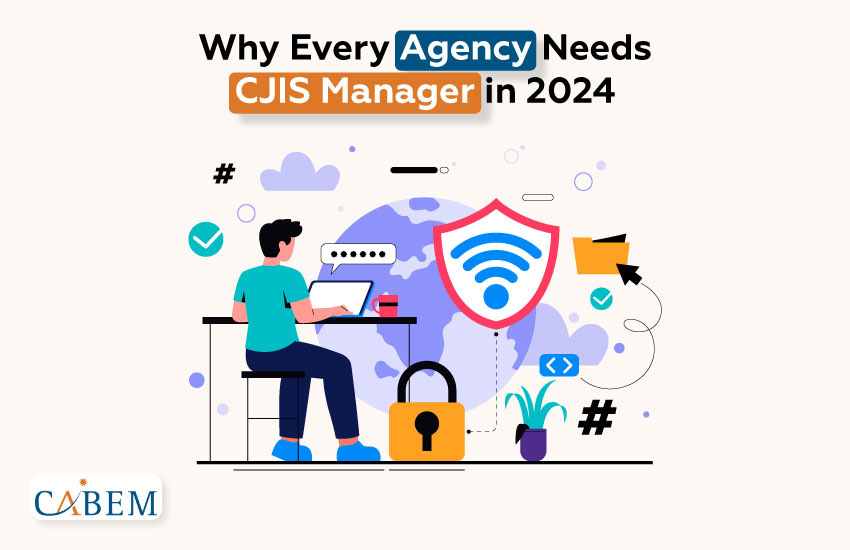
Why Every Agency Needs CJIS Manager in 2024
As we head towards 2024, cybersecurity for law enforcement agencies is no longer an option but a must have. With the increased sophistication of cyber-attacks and more demanding regulatory requirements, having a solution like CABEM CJIS Manager is vital.
It offers more than automation of compliance. It can also integrate with other systems and provide real-time security views, making it an exceptional tool.
The CABEM CJIS Manager’s work is to ensure that the data of the agencies that defend the community is safe while the agencies focus on their core work, which is defending the communities.
Are you ready to understand how the CJIS Manager by CABEM is changing the narrative about data security for law enforcement agencies and other public sector institutions? Read our blog on “Understanding The Criminal Justice Information Services—CJIS“ to learn more about CJIS compliance.
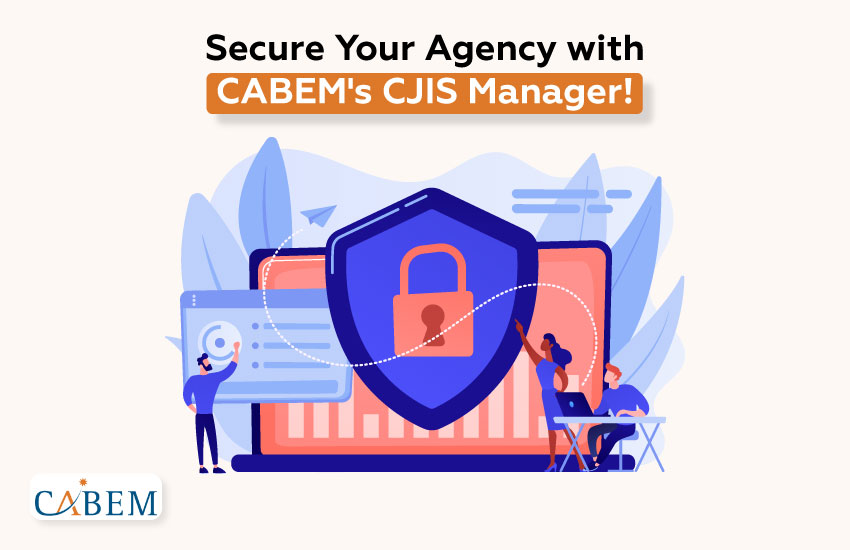
Secure Your Agency with CABEM’s CJIS Manager!
Making the proper decision regarding a data protection method could be a game changer. CABEM’s CJIS Manager is an all-in-one solution for managing compliance, securing sensitive data, and streamlining audits.
- Gartner estimates that 60% of public sector organizations will suffer a significant data breach by 2025 if they don’t update their cybersecurity strategies.
With over two decades of industry experience and customized software solutions, CABEM promises to deliver the best data protection practices.
Read how CABEM’s CJIS Manager application simplifies compliance by examining our case study on ‘State Correctional Facility Managing CJIS Training and Background Checks‘.
FAQs
Why is data security more important in 2024 than before?
Due to remote work, new cyber threats, and strict compliance demands, agencies’ security parameters are becoming increasingly complicated. Compromising on protecting sensitive information of even primary operations can be detrimental to public confidence.
How does the CJIS Manager protect data?
Compliance enforcement procedures, data encryption, access control, audit trails, and real-time alerts are all automatic functions of the CJIS Manager, so continuous backup is possible whenever an incident of unauthorized access occurs.
Can CJIS Manager protect against all kinds of cyber threats and web attacks?
Although no system can claim to be impervious, CJIS Manager has practical tools to counter the most severe and prevalent cyber threats in law enforcement agencies, such as ransomware attacks, unauthorized access, and phishing attacks.
Does the CJIS Manager comply with all relevant regulations?
Sure, the CJIS Manager fully complies with all the applicable requirements of the FBI’s CJIS Security Policy because it can meet state and federal regulatory requirements for handling Criminal Justice Information.
How is CJIS Manager different from other data security tools?
CJIS Manager is designed to meet the needs of law enforcement agencies. It provides automated compliance, role-based access privileges, and a simple interface that is easy to integrate into existing systems other than standard security tools.

